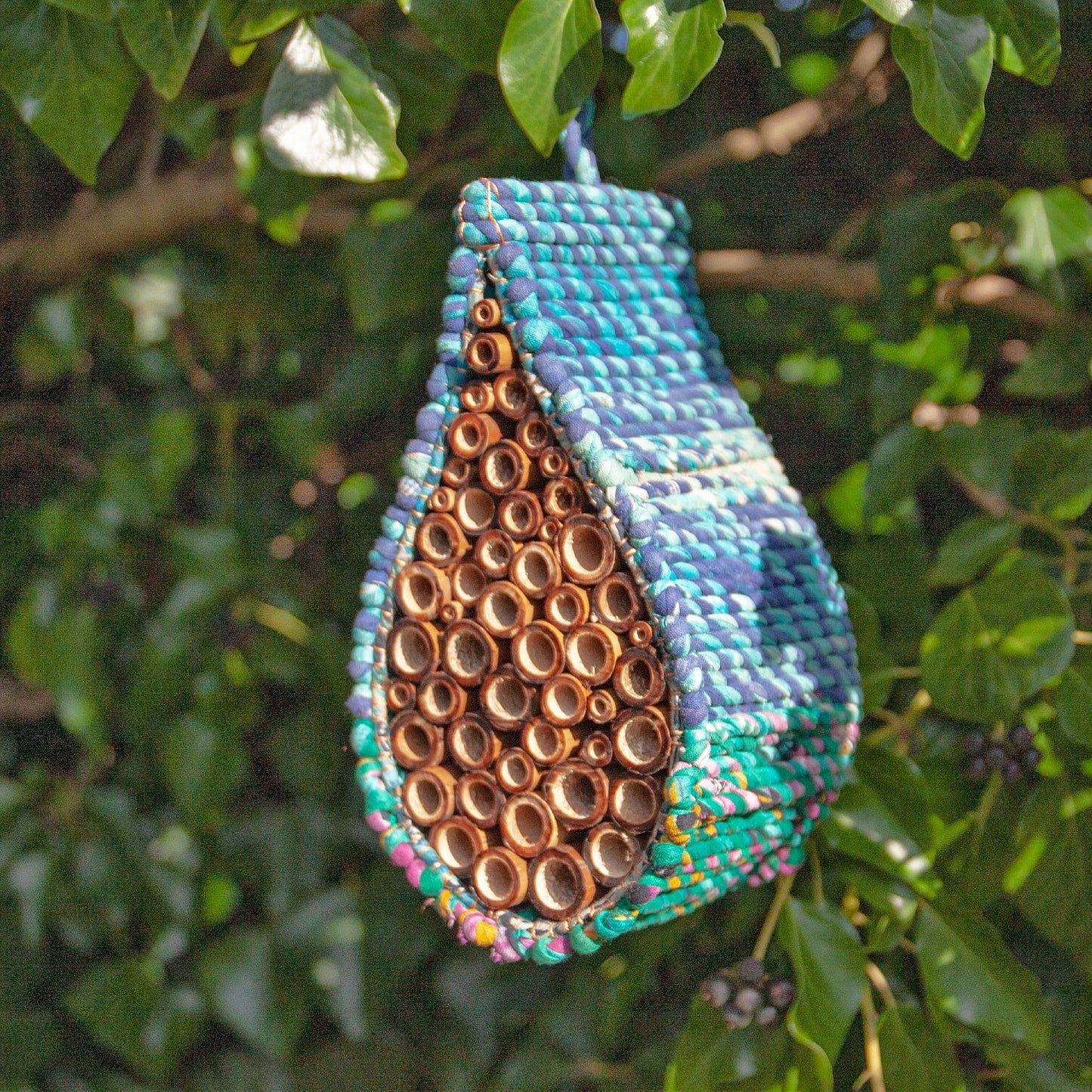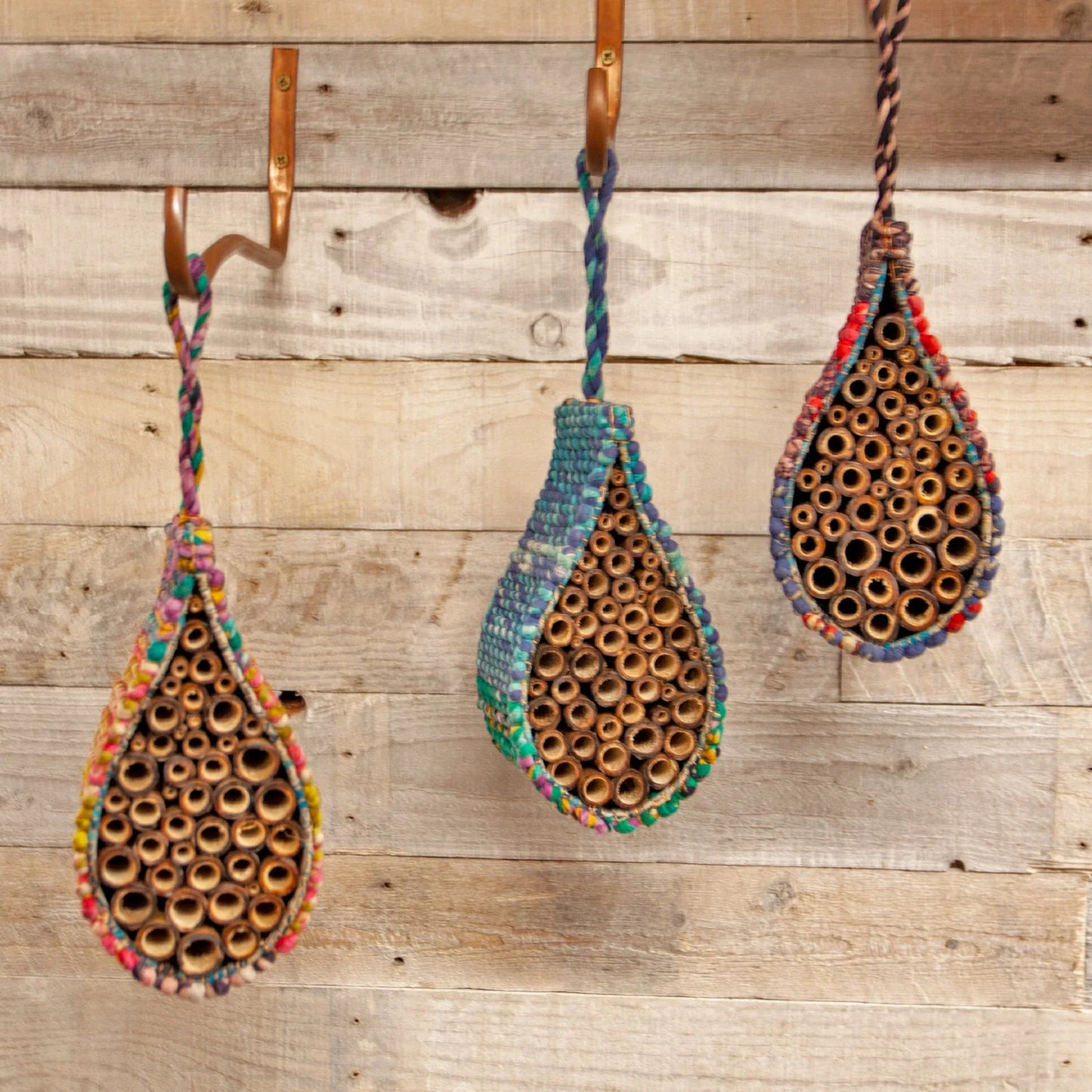Artisan Insect & Bee Hotel
Artisan Insect & Bee Hotel
Couldn't load pickup availability
Please note that colours will vary from the picture and with each individual product as they are handmade from recycled materials.
The Artisan Insect & Bee Hotels are part of Wildlife World's artisan fair-trade wildlife range.
They provide a safe habitat for solitary garden bees, whilst also making a colourful addition to any garden.
This nester has a sturdy inner frame for support. Attached long loop at the top ensures you can easily site the hotel and fix it securely.
Handmade to the highest quality finish using recycled saris, every hotel is unique in colour. Each individual artisan chooses a colourful recycled sari pattern to work with, making every nester different.

Purchasing a Fair Trade product helps both wildlife and people. In addition to giving a bee a home, you'll be supporting the Artisan workers in Southern Bangladesh who make them, funding the survival of many women and their families from rural communities in desperate poverty.
Brand: Wildlife World
Composition: Metal framework, recycled saris and bamboo tubes
Country of origin: Bangladesh
Dimensions: H20 x W10 x D10cm
About solitary bees
Over 90 per cent of our bee species are solitary, and although these solitary species may often nest in dense populations, each nest is the work of a single female. You can help them by providing solitary bee hives like this Bee Hotel.
There is a selection of common solitary bees that can be found in Britain’s gardens. These can be formed into two groups, Mining Bees and Cavity Nesting Bees.
Cavity nesting bees don’t excavate nests of their own. These species, such as masked bees, masons, leafcutters and carders, use existing cavities. Some species of mason bees may even use empty snail shells, dividing them into compartments with walls of mud or chewed leaves.
Mining bees excavate nest tunnels and cells in the ground. Most species prefer light, sandy, often disturbed soils but some have preferences for firmer clay and some also nest in vertical clay or chalky cliffs.
Bees are the principal pollinators of flowering plants and, as such, play a crucial role in food production. Without bees many fruits, vegetables and other produce would not be produced and many wild flowers would disappear from the countryside. Honey bees, bumble bees and solitary bees all feed on nectar and pollen. Providing a wide variety of plants, shrubs and trees that flower at different times through the spring and summer is one of the best ways to help bees and other nectar feeding insects, providing them with a constant food supply.
Top flowering plants for bees include: aubretia, alysum, aster, balsam, broom, buddleia, busy lizzie, candytuft, clover, coneflower, cornflower, crocus, dandelion, hebe, honeysuckle, hyacinth, hydrangea, lavender, laveteria, leopards bane, ling heather, lobelia, lupins, marjoram, michaelmas daisy, mint, oregano, phlox, poppy, primrose, scabious, sedum, sweet rocket, snowdrop, tree poppy, thyme, viburnum, wallflower, single flowered varieties of flowering cherries, almonds & apricot.
Information from Wildlife World
Share




